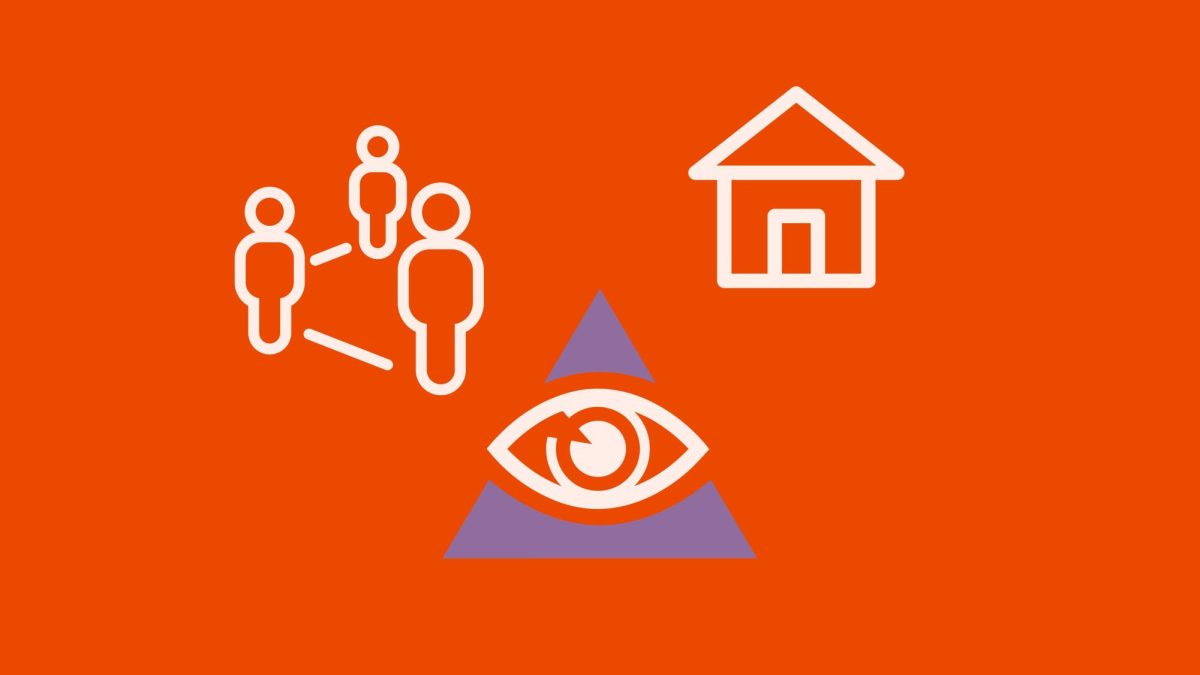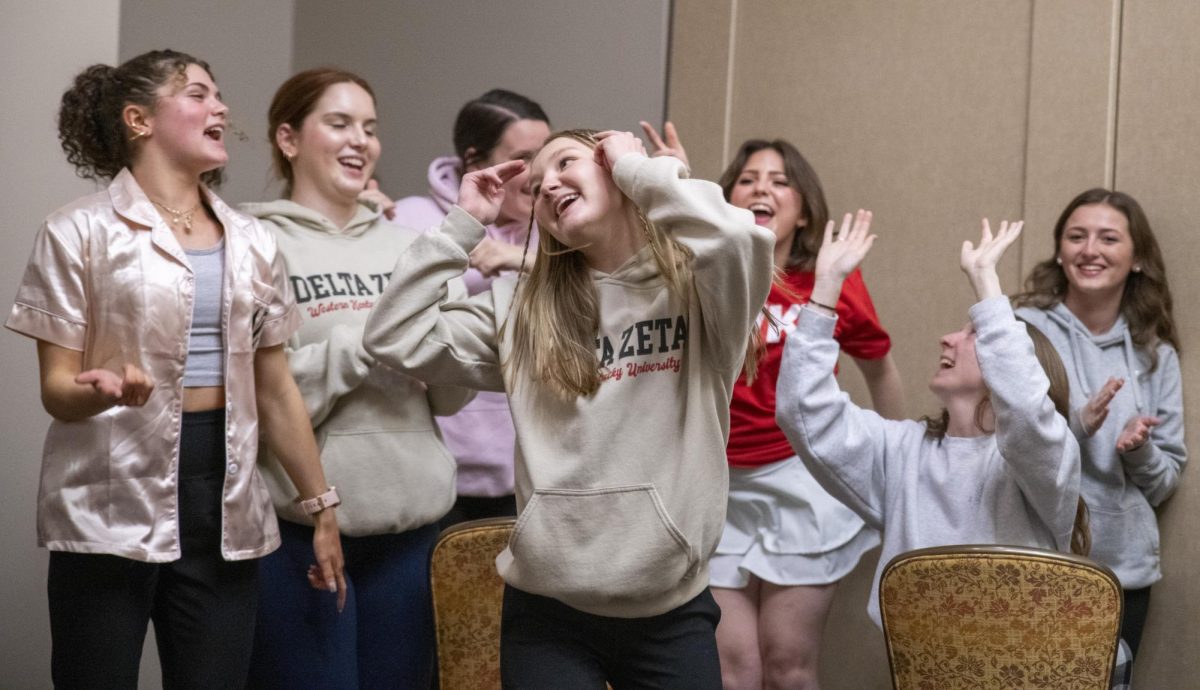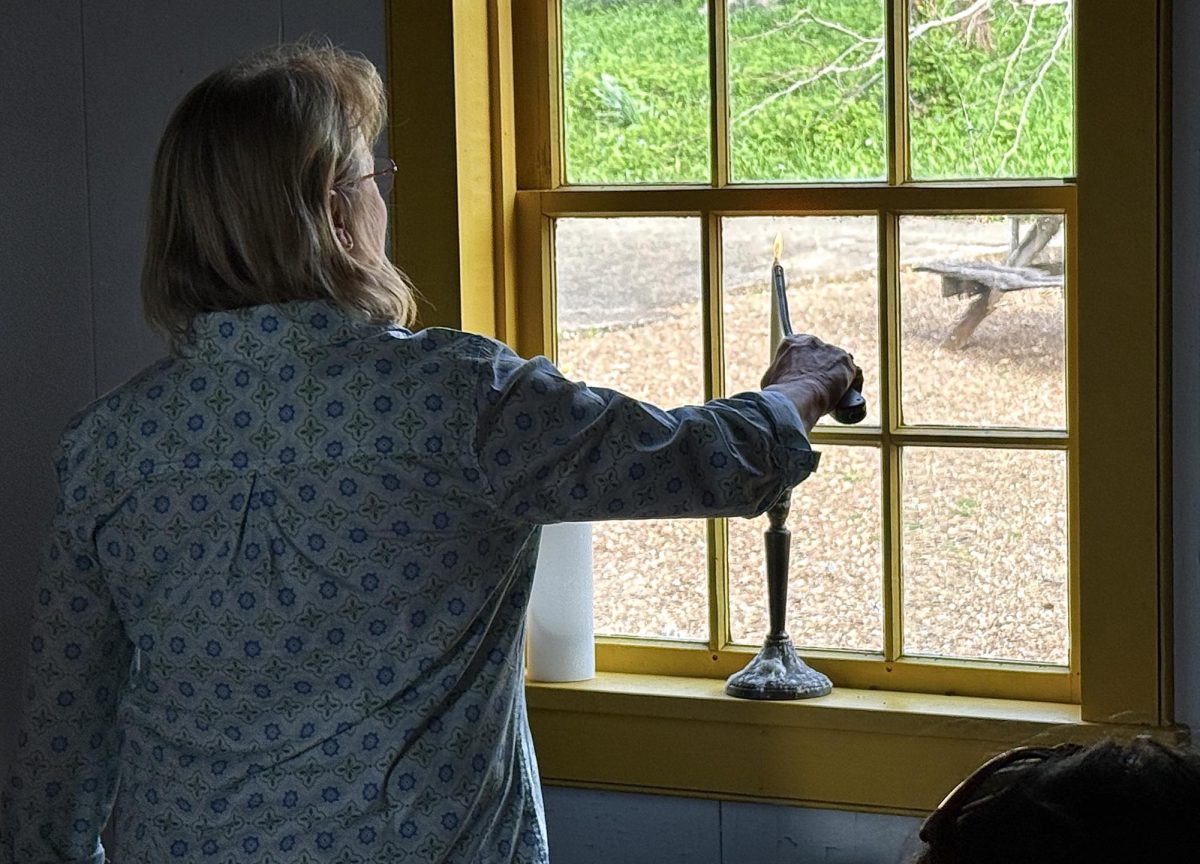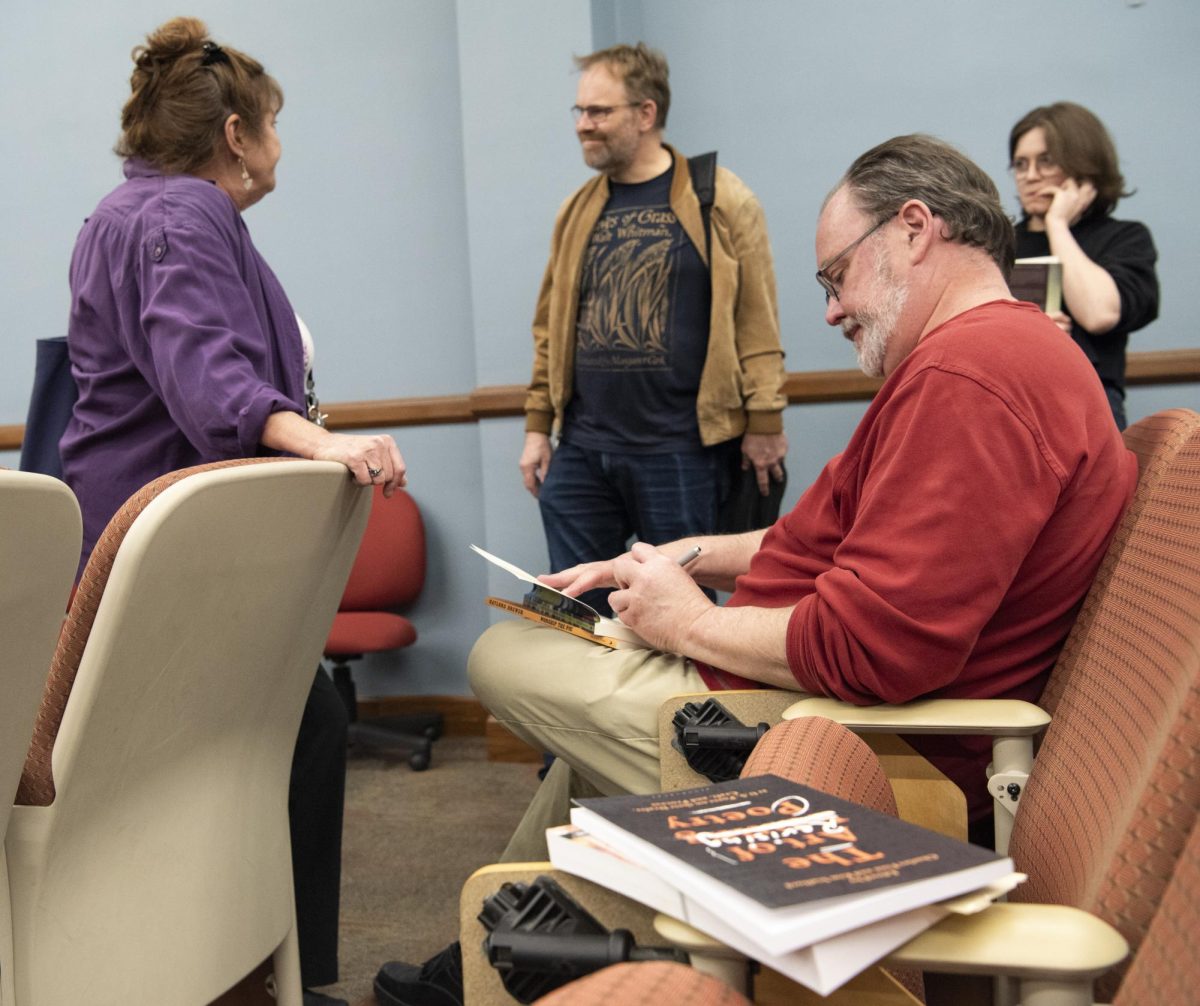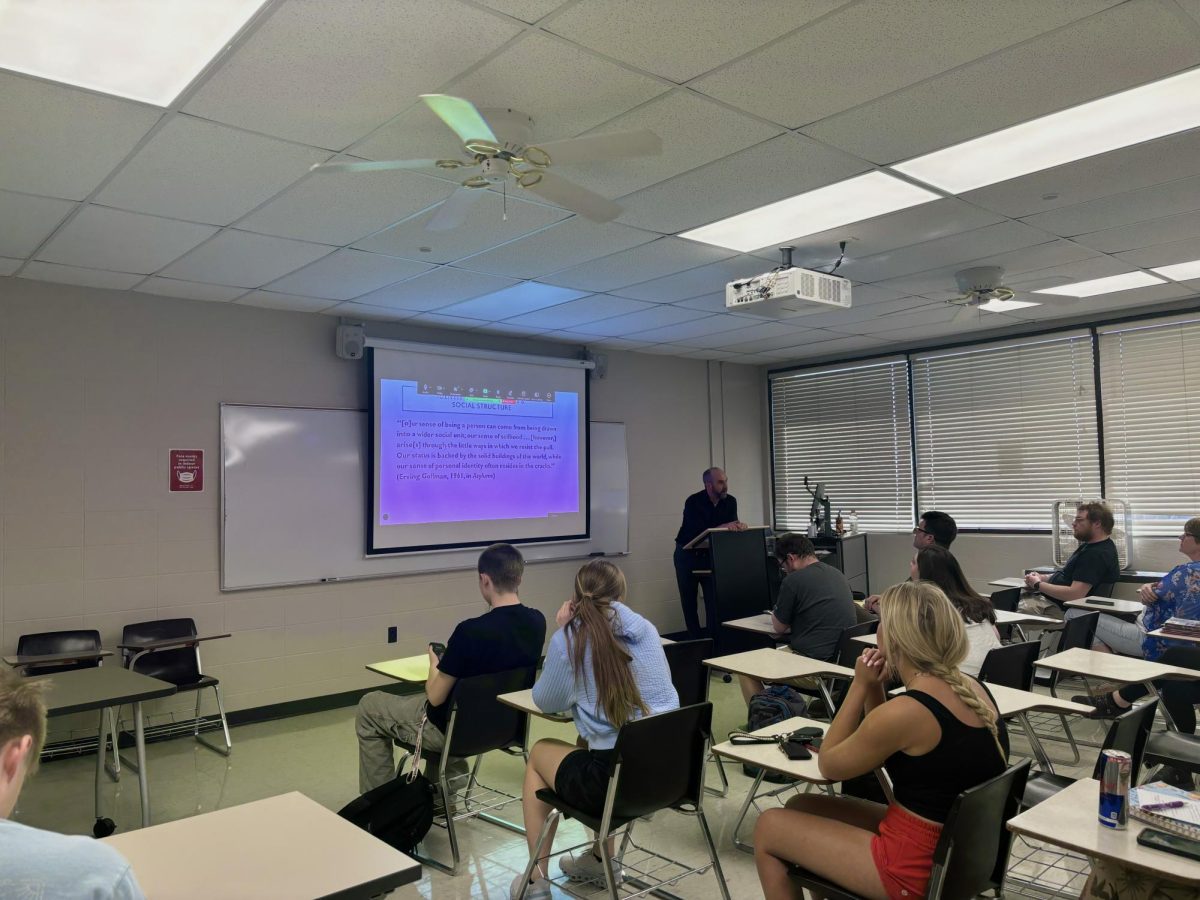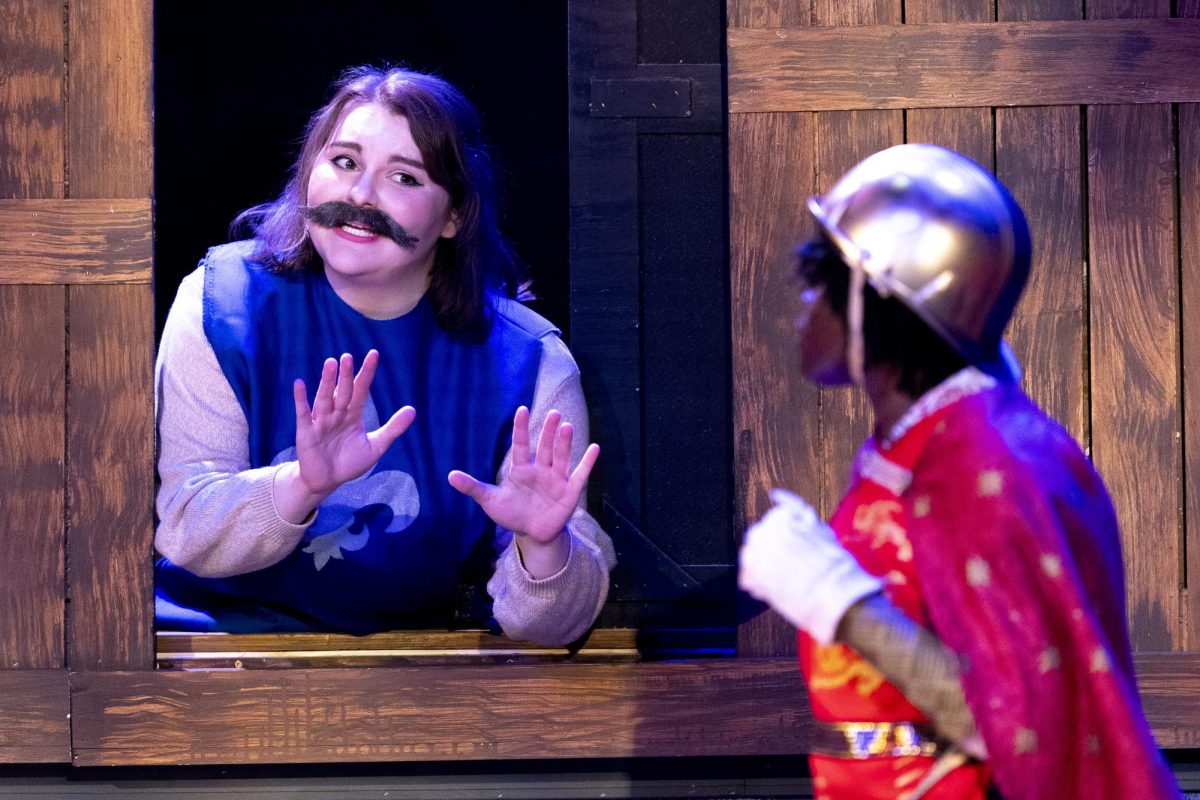The WKU History Department will offer the new course HIST 374: Secret Societies, Fraternities, and Sororities in the spring 2024 semester.
Katherine Lennard, Frockt Family Chair and associate professor of history, will be teaching the new class, with a background in studying the cultural history of the United States after the Civil War.
“The idea is that we’re going to start with talking about ways that secret societies and these kinds of organizations have shaped American culture, how they’ve shaped how Americans understand belonging and community since the colonial era,” Lennard said.
Lennard said that they would also focus on secret societies, fraternities and sororities on college campuses, and how the dynamics of gender, race and class play a role in a college setting.
“We’re going to talk about Freemasons, we’ll talk about the Odd Fellows, we’ll talk about a late 19th Century order called The Improved Order of Red Men,” Lennard said. “(…) These are organizations that are involved in cultural life. There’s groups like the Black Elks, which are an organization that descends from pullman porters.”
With collegiate fraternities and sororities, Lennard said that they will talk about the various historically black and historically white fraternities on campus.
“Part of (my background) is research on these sorts of all-male institutions, like the Ku Klux Klan, like some collegiate fraternities, that carried on ideas about race and identity in the wake of the Civil War,” Lennard said. “For the department, it was an opportunity to teach from my expertise as a scholar, but I think it’s really exciting for college students to get to think about big historical issues like the formation of community, identity, and how those play out close to home.”
Lennard said that scholars have stated that the post-Civil War era, from the late 1880s into the early 20th Century, is the “Golden Age of Fraternities.”
“It’s a period in which Americans, in all kinds of different community groups, are trying to understand and negotiate where they fit in the world,” Lennard said. “This is a moment of rapid national growth, modernization, urbanization, development of big cities even further. This is a time when you have a lot of people who have moved; the Civil War prompted a lot of change in migration, both formerly enslaved people moving out or throughout the South.”
Lennard said that the class will go before the post-Civil War era to look at the roots of the organizations, with the era seeing a lot of people trying to “find where they fit.”
Lennard said that the class benefits from the students having, “a wide range of perspectives,” when it comes to these organizations.
“I encourage students who find the topic compelling, for any reason, to come on over and see what we’re doing,” Lennard said.
Students can expect to read a variety of primary sources of people talking directly about the societies, along with secondary sources of historians contextualizing the history of these organizations, Lennard said.
At the end of the semester, Lennard said that the class will create an exhibition in the Commons in partnership with the library of fraternity and sorority materials in Bowling Green.
Sydney Denney, a senior double majoring in political science and history, is one of the students that has signed up for the class, and is already taking Lennard’s Civil War and Reconstruction class.
“She’s very knowledgeable about everything she teaches, and the research,” Denney said. “I decided to sign up for the (class), not only because Dr. Lennard was teaching it and I really enjoy her as a professor, but also because I am in a sorority on campus.”
Denney is currently a member of the Kappa Delta sorority, and wants to learn how others outside of Greek Life interpret it through Lennard’s class.
“Being on a campus like Western’s, I thought it would be very interesting to see that dichotomy between the different Greek and non-Greek people in the class,” Denney said. “(We could) get to talk about what their perception of Greek Life is versus what our truth and reality of it is, and also talk about how that’s looked throughout history,” Denney said.
Denney said that with Lennard’s class that she is already taking, she enjoys it because of Lennard’s teaching style.
“Professor Lennard doesn’t just come at her history classes from a history perspective,” Denney said. “She really does come at it from a very humanizing perspective, and she’s very good about putting everything into context, and showing up how this time in history really shaped peoples’ lives, and even how it’s shaped America now.”
Denney said she is interested in learning how these societies have emerged and evolved over time, especially having participated in sorority rituals in Kappa Delta.
“I think one of the biggest things I hope to take away is just having productive conversations about these Greek Life organizations and secret societies with people who may not be in them,” Denney said. “I think it’s really important to explore both sides of that narrative, just because they have perceptions about Greek Life that may be true, may not be true. Likewise, they also have perceptions that people in Greek Life may not realize.”
Denney said that she is excited to have such conversations, and to figure out how to be “a little more open on both sides,” when it comes to Greek Life and secret societies.
“I think this is an exciting opportunity to get to go into the archives and look at some materials that not a lot of people have looked at,” Lennard said. “And also to figure out how to talk about these organizations for a bigger audience.”
Lennard said that she hopes the themes of finding belonging and how people try to assert power over other people resonate with students, to think more critically about their own experiences in other groups.
“Like any history class, we’re interested in looking at what is distinct about these dynamics in any particular moment,” Lennard said. “I’m hoping students come away with an ability to think more historically about what isn’t universal about these dynamics, what is so special about the turn of the 20th Century that so many people are joining these fraternal organizations.”
Reporter Damon Stone can be reached out at damon.stone314@topper.wku.edu

